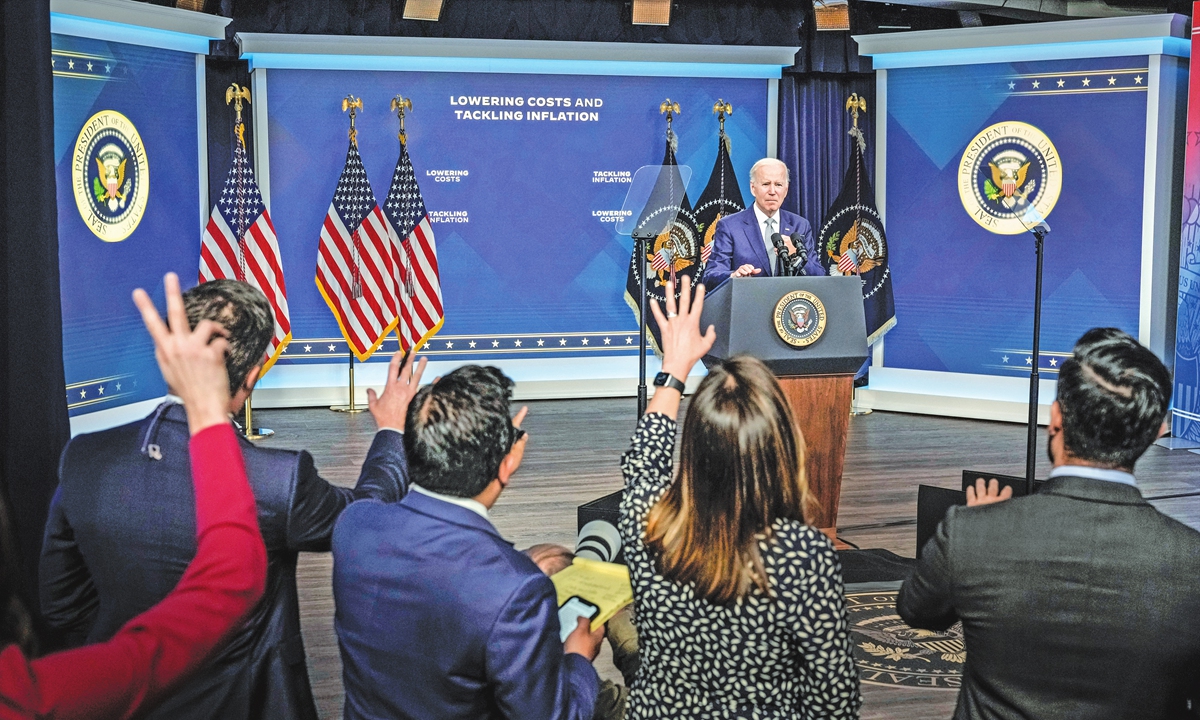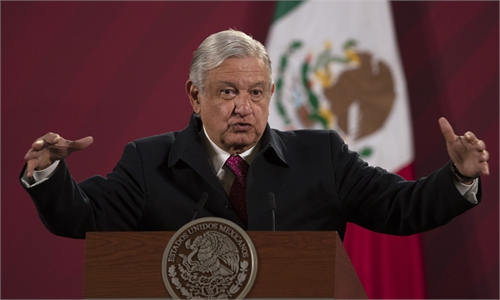Biden eases restrictions on family remittances, travel
US revises policy on Cuba

US President Joe Biden takes questions from reporters after speaking about inflation and the economy in the White House on May 10, 2022 in Washington, DC. Biden stated that tackling the rising prices is his top domestic priority.Photo:VCG
The US on Monday announced a series of steps to revise its policy toward Cuba, including easing some Trump-era restrictions on family remittances and travel to the island and sharply increasing the processing of US visas for Cubans.
The measures, which were rolled out after a lengthy US government review, mark the most significant changes in the US approach to Havana since President Joe Biden took office in January 2021.
But the announcement stopped short of returning US-Cuba relations to the historic rapprochement engineered by former President Barack Obama, under whom Biden served as vice president. That included less crimped flow of remittances, fewer travel curbs and faster visa services.
The State Department said the US would lift the cap on family remittances, previously set to $1,000 per quarter, and authorize donative remittances to non-family members.
But it made clear that the US would not remove entities from the Cuba Restricted List, a State Department list of Cuban government- and military-aligned companies with whom US firms and citizens are barred from doing business.
"We are going to ensure that remittances flow more freely to the Cuban people, while not enriching those who perpetrate human rights abuses," an administration official said.
The US will use "electronic payment processors" for remittances to avoid funds going directly to the Cuban government, an official said, adding that the US had already engaged with the Cuban government "about establishing a civilian processor for this."
Senator Bob Menendez, the Democratic chairman of the Senate Foreign Relations Committee, said in a statement: "Today's announcement risks sending the wrong message to the wrong people, at the wrong time and for all the wrong reasons."
Cuban Foreign Minister Bruno Rodriguez, in a Twitter post, called the US announcement "a limited step in the right direction." "The decision does not change the embargo, the fraudulent inclusion [of Cuba] on a list of state sponsors of terrorism nor most of the coercive maximum pressure measures by Trump that still affect the Cuban people," he said.
Among the changes is a plan to reinstate the Cuban Family Reunification Parole Program, which had provided a legal way for Cuban families to be reunited in the US, and increase capacity for consular services in the country.
Reuters



